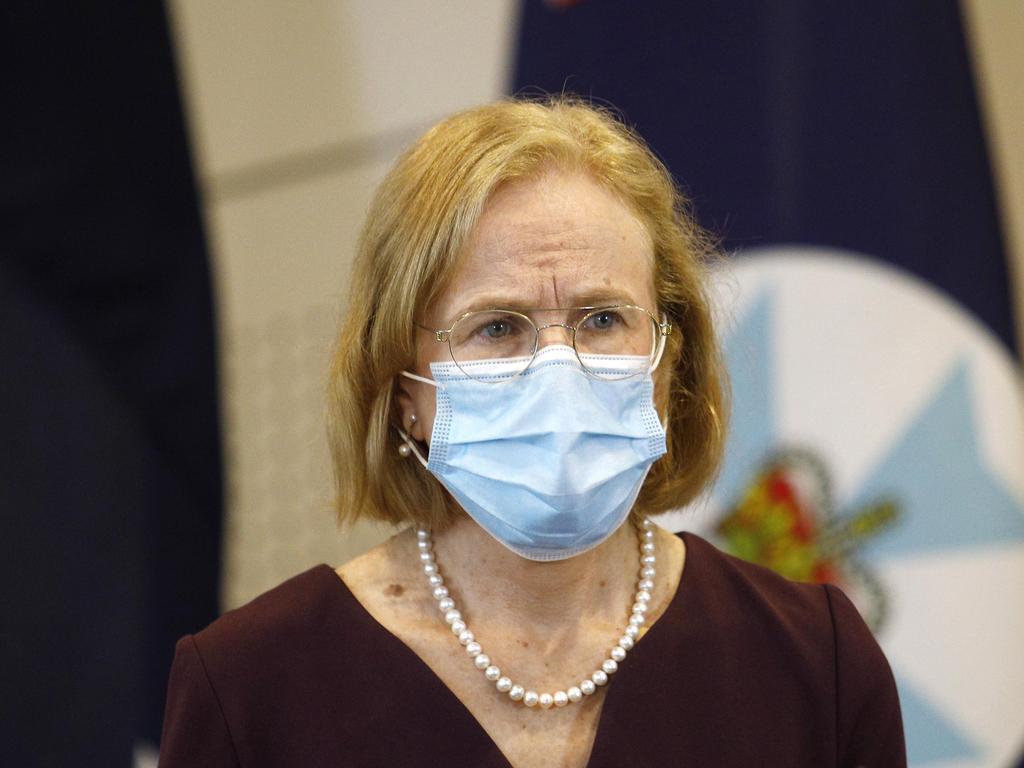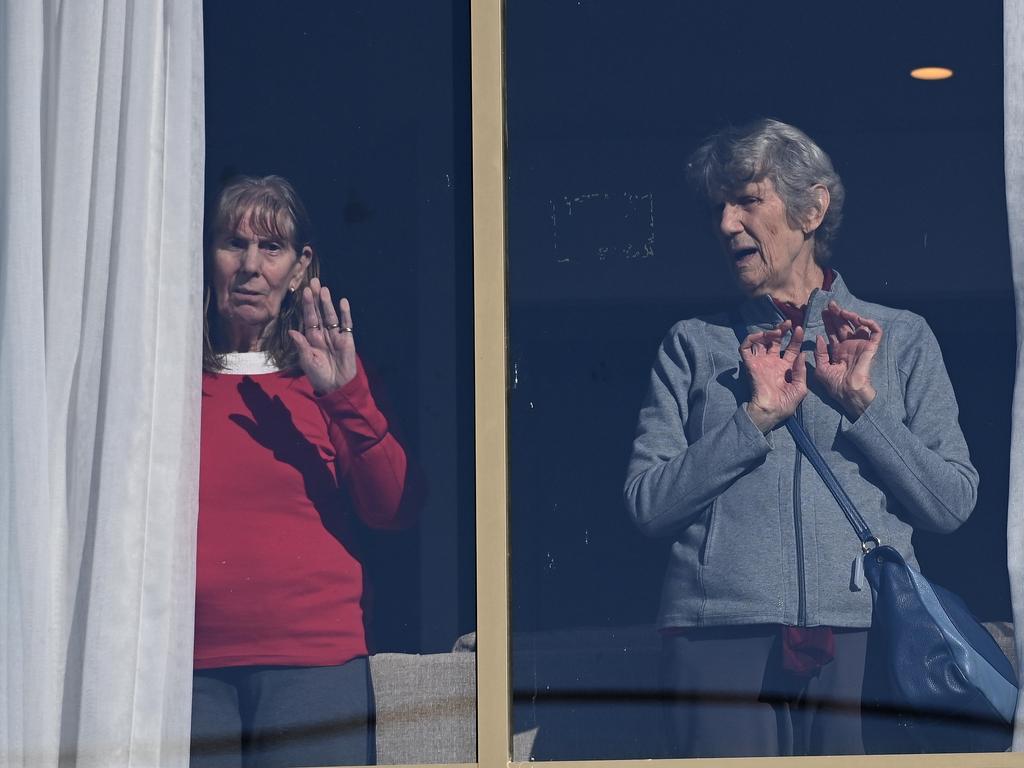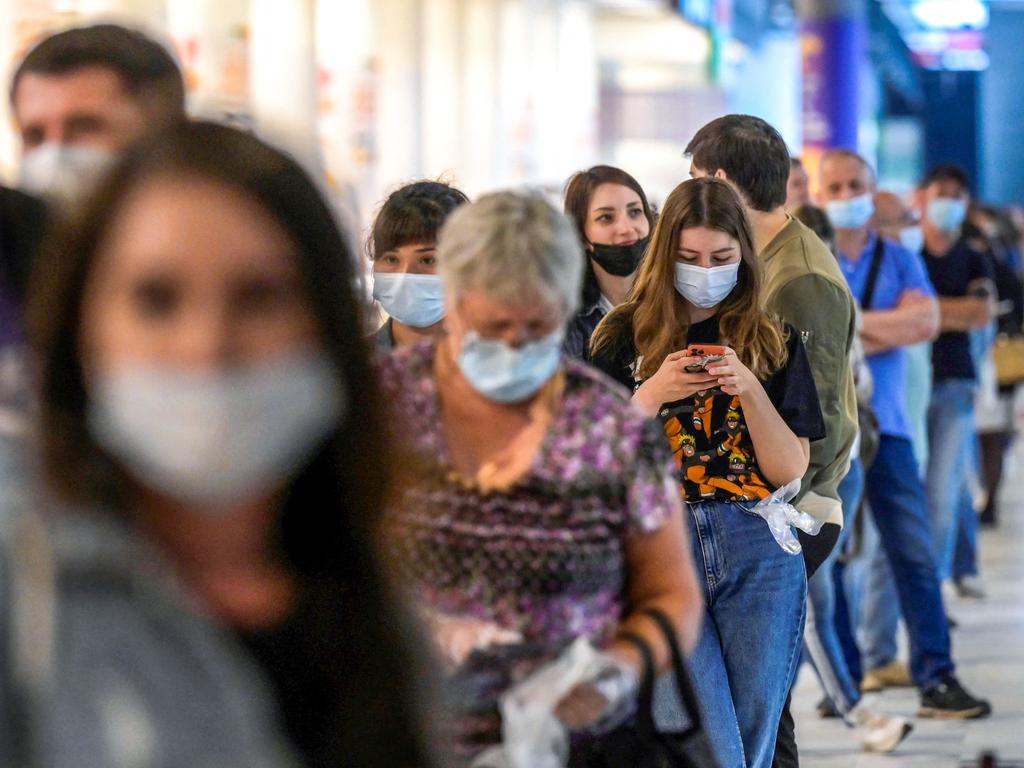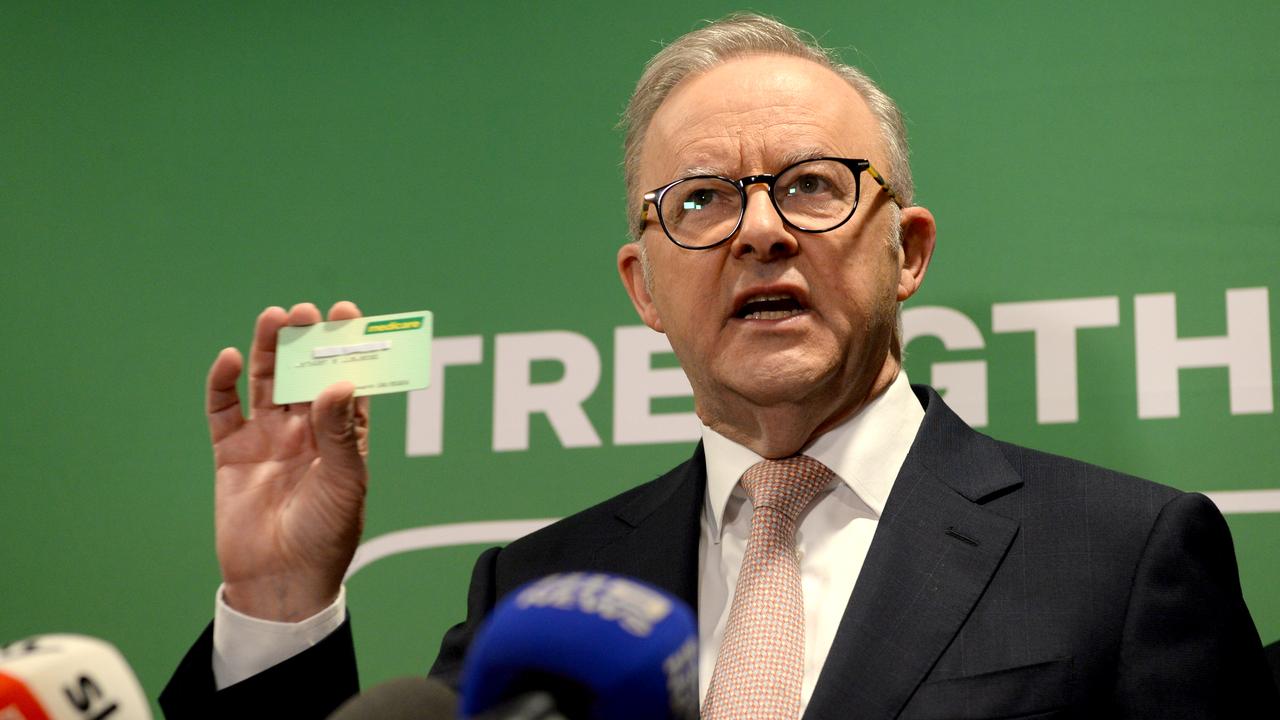Covid-19: States hold key to freedom from lockdowns, business warns
The nation’s business leaders warn the PM’s plan is captive to realistic vaccination targets and premiers honouring them.
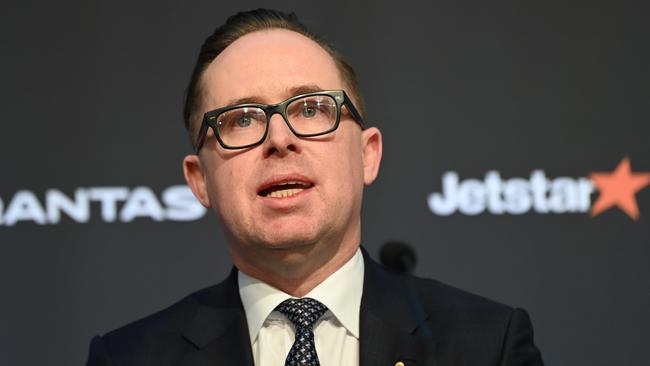
The nation’s most senior business leaders are warning that Scott Morrison’s four-step plan to reopen Australia is captive to the setting of realistic and achievable vaccination targets by medical experts and the willingness of premiers to honour them.
While the Prime Minister on Friday clinched a deal at national cabinet for a path back to normality where Covid-19 is treated like other infectious diseases, business is pushing the government to go further by scrapping lockdowns and reopening the international border by the start of next year.
On Sunday Qantas chief executive Alan Joyce said having “clear metrics” about the next phase of the recovery was critical but he warned the public was “not of a mindset to say lockdowns should be continuing into next year”.
Australian Industry Group chief executive Innes Willox said state governments needed to abide by the plan and open up when the new vaccine thresholds were met. He said “business have had enough of lockdowns” and “the thought of more lockdowns this winter quite frankly terrifies people”.
“Our federation is already fragile enough without a premier or their chief medical officer taking it on themselves to think that they know best,” Mr Willox said.
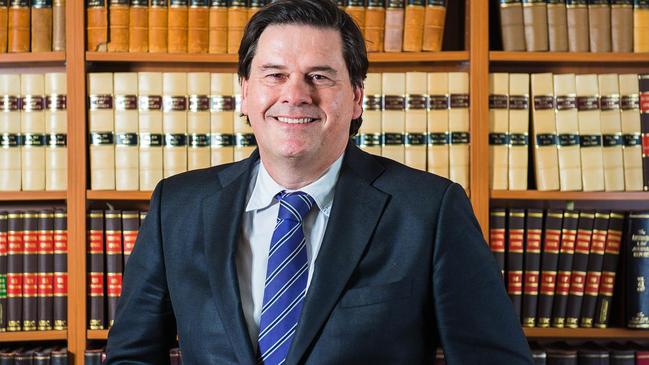
Business Council of Australia chief executive Jennifer Westacott warned precise vaccine targets and timetables would work only “if all the states and territories agree to end the patchwork of restrictions and work together in the national interest”.
“People are depending on national cabinet to work together quickly to develop a realistic plan with achievable targets, based on the best health advice and in line with the supply of vaccine,” Ms Westacott said.
The push from business groups came as deputy chief medical officer Michael Kidd said 500 GPs across the nation would begin offering the Pfizer vaccine to those aged 40 to 59 from this week, as the government ramped up the rollout amid criticism it had been too slow.
“During this month another 800 general practices will come online with the Pfizer vaccine as well as the AstraZeneca vaccine,” Professor Kidd said.
“This includes many Aboriginal community-controlled organisations, which will be offering the Pfizer vaccine progressively through July and August.”
There were 16 new Covid-19 cases reported in NSW on Sunday, with Queensland and Western Australia each recording one case.
Speaking on Sunday, NSW Premier Gladys Berejiklian said more specifics were needed about the four-step reopening plan unveiled by Mr Morrison on Friday.
“The public would like to see some time frames, and I look forward to being part of those discussions,” Ms Berejiklian said.
“If national cabinet has determined a unified approach across the nation, I’m more than happy to support what that unified approach is, but I think we need to be ambitious and we also need timelines to give to the community.”
Ms Berejiklian previously has flagged a vaccination target of 80 per cent of the adult population before NSW begins reconsidering Covid-19 public health measures.
But Mr Willox said any new vaccine targets – to be set by the COVID-19 Risk Analysis and Response Taskforce based on scientific modelling conducted by the Doherty Institute – needed to be realistic or the whole four-step agreement would fail.
“We don’t want to set ourselves up to fail. What is agreed has to be achievable and in a reasonable time frame,” he said. “To have a percentage target that is too high just defeats the purpose of having an agreement.”
Grattan Institute health program director Stephen Duckett said Ms Berejiklian’s goal of 80 per cent was realistic but any vaccine threshold needed to apply to the entire population, including children. He conceded the task of coming up with the “magic number” would be a “complex equation” due to the varying risk factors for different age groups, with the government ideally aiming for “very, very high levels” of vaccination among those who were vulnerable and “moderate” levels of vaccination for less affected cohorts.
“When you’re setting the threshold you’re trying to make Covid look more like the flu, where you might have 1000 deaths a year. You would hope to convert Covid from a really deadly disease into something we’re more used to accepting,” he said.
Mr Joyce told The Australian there was potential for national cabinet to “find common ground” on vaccination thresholds, saying he agreed with Victorian Premier Daniel Andrews when he said last week that lockdowns should end when “everyone who wants to be vaccinated has been given an opportunity to do that”.
“If the logic of Dan Andrews and (Queensland Premier) Annastacia Palaszczuk applies, once we’ve got every adult who wants a vaccine to be vaccinated, then surely that should be the threshold,” he said. “I support that logic.”
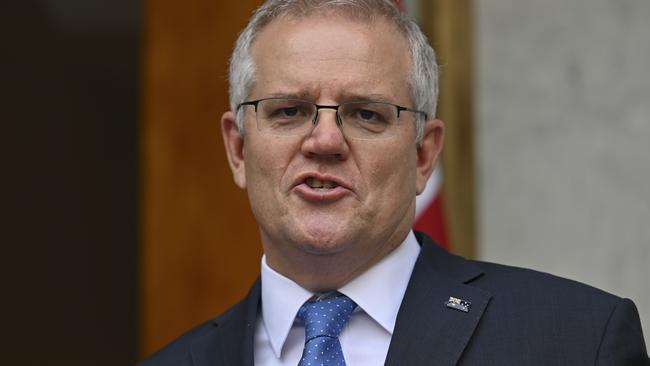
Mr Joyce also pushed for a 2022 reopening of domestic and international borders given Mr Morrison’s view that every Australian in want of a vaccine would have one by the end of the year.
“Most people should be vaccinated before the end of the calendar year,” he said. “Hopefully they can meet that time frame.”
Anthony Albanese, however, said the lack of detail in the four-step deal announced on Friday “says it all”.
“The fact is that the rest of the world is opening up, Australia continues to be locked down in large part,” the federal Opposition Leader said. “That’s a direct result of the failure of the government on two issues: on failing to roll out the vaccine effectively and failing to put in place appropriate fit-for-purpose quarantine facilities.”
Deloitte Access Economics partner Chris Richardson said Australians were “stuck under the doona” because the population was “terrified” by Covid-19, arguing the success of the four-step plan unveiled by Mr Morrison would depend on overcoming vaccine hesitancy and the ability of premiers to honour the deal.
“The four-stage plan is fine but there are many potholes on that path out from whether it is individuals who will remain too scared around vaccines, and we simply won’t hit the percentage targets that the Doherty Institute eventually gives us, to states who might sign on to the four stages in theory but not necessarily in practice,” Mr Richardson said. “The question is whether it’s achievable.”
Tony Shepherd, who headed Tony Abbott’s commission of audit in 2014, said the “unfortunate thing in this crisis is that competitive federalism may be working against what is good for the whole”.
“And what’s good for the whole is, while protecting the health of everybody, to return the economy to full speed as full as possible,” Mr Shepherd said. “Politicians have realised in this that they can build community support by demonstrating that they are safe and sensible leaders … but at some stage we have got to put the national good above the state good.”


